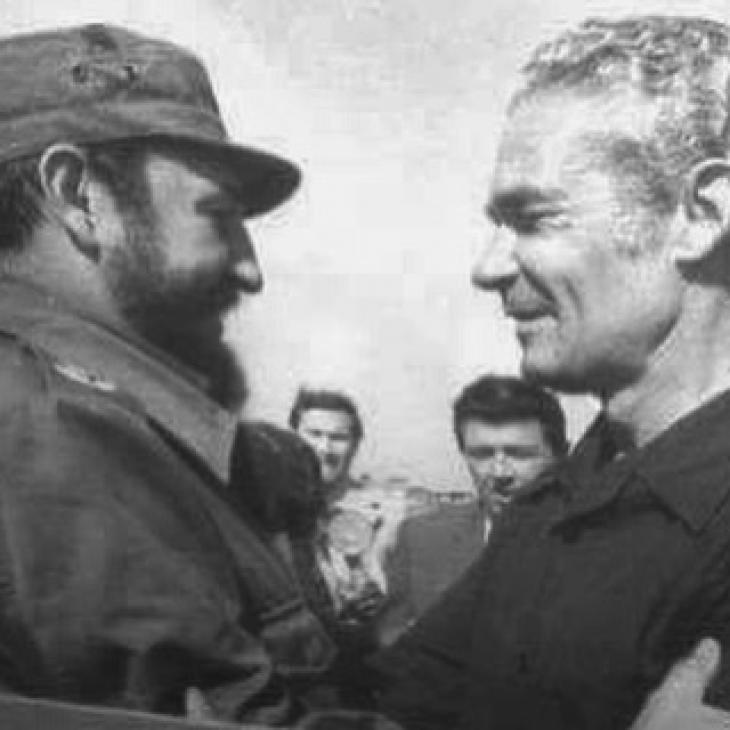
By Publisher Ray Carmen:
How a Caribbean Solidarity Shaped a Continent – and Stirred the West
It was the 1970s – a time of revolution, reggae, and rising consciousness across the Caribbean. Jamaica’s Prime Minister, Michael Manley, with his fiery rhetoric and unmistakable charisma, stood at the helm of a people’s movement. To the north, Fidel Castro held Cuba steady against the tide of U.S. hostility. Together, they formed a bond that would challenge the global order and shake the very foundations of Cold War geopolitics.
A MEETING OF MINDS AND MISSIONS
When Michael Manley was elected in 1972, he didn’t just inherit a nation—he inherited a dream. A dream of equality, independence, and a Caribbean free from neocolonial manipulation. Castro, already a revolutionary icon, saw in Manley not just a political ally, but a brother in struggle.
Their friendship blossomed not out of convenience, but conviction. Manley admired Cuba’s healthcare and education achievements. Castro, for his part, saw Jamaica as a frontline in the ideological war between empire and emancipation. The two would meet often—publicly and privately—sharing visions of a united Caribbean, empowered and self-determined.
In 1975, Manley famously declared at the Non-Aligned Movement conference that “no country has the right to tell another country what friends it should have.” It was a clear message to Washington: Jamaica would chart its own course.
ANGOLA: A CONTINENTAL TEST OF LOYALTY

The friendship was tested—and solidified—on African soil. When civil war erupted in Angola following the end of Portuguese colonial rule, Cuba sent thousands of troops to support the leftist MPLA against apartheid-backed and CIA-supported forces. Fidel’s move shocked the West. But Manley? He supported it.
To Manley, Cuba’s intervention wasn’t aggression—it was solidarity. He saw the struggle in Angola as a continuation of the Caribbean’s own fight for freedom. Jamaica, under Manley, stood firmly behind Cuba’s actions, refusing to condemn Havana at the United Nations despite intense pressure from Washington.
This stance was not without consequences. U.S. Secretary of State Henry Kissinger, a fierce Cold Warrior, was furious. Diplomatic relations between Washington and Kingston soured. Jamaica faced economic retaliation, aid cuts, and what many believe were covert attempts to destabilize Manley’s democratic socialist government.
BROTHERHOOD AGAINST THE TIDE
Still, Manley never backed down. He wore his friendship with Castro like a badge of honor, defiant in the face of critics. In a time when aligning with Cuba meant isolation from the West, Manley chose principle over popularity. He believed the Caribbean should not be forced to choose between sovereignty and survival.
Though Jamaica would later shift its foreign policy stance under different leadership, the Manley-Castro alliance left a lasting legacy. It showed the world that small nations, standing together, could command attention and demand respect.
LEGACY OF A RARE ALLIANCE
Today, the friendship between Michael Manley and Fidel Castro is remembered not just as a political alignment, but as a symbol of Caribbean unity and resistance. It was a time when ideals mattered, when leaders were unafraid to speak truth to power—even when the cost was high.
As Caribbean nations continue to navigate the currents of global politics, the story of Manley and Castro remains a powerful reminder: the Caribbean is not merely a collection of small islands—it is a region of great courage, rich vision, and enduring solidarity.
Do you remember the days of that old great lion, Michael Manley? We do. And the echoes of his voice—bold, principled, Caribbean—still ring true today.
Caribbean World Magazine




